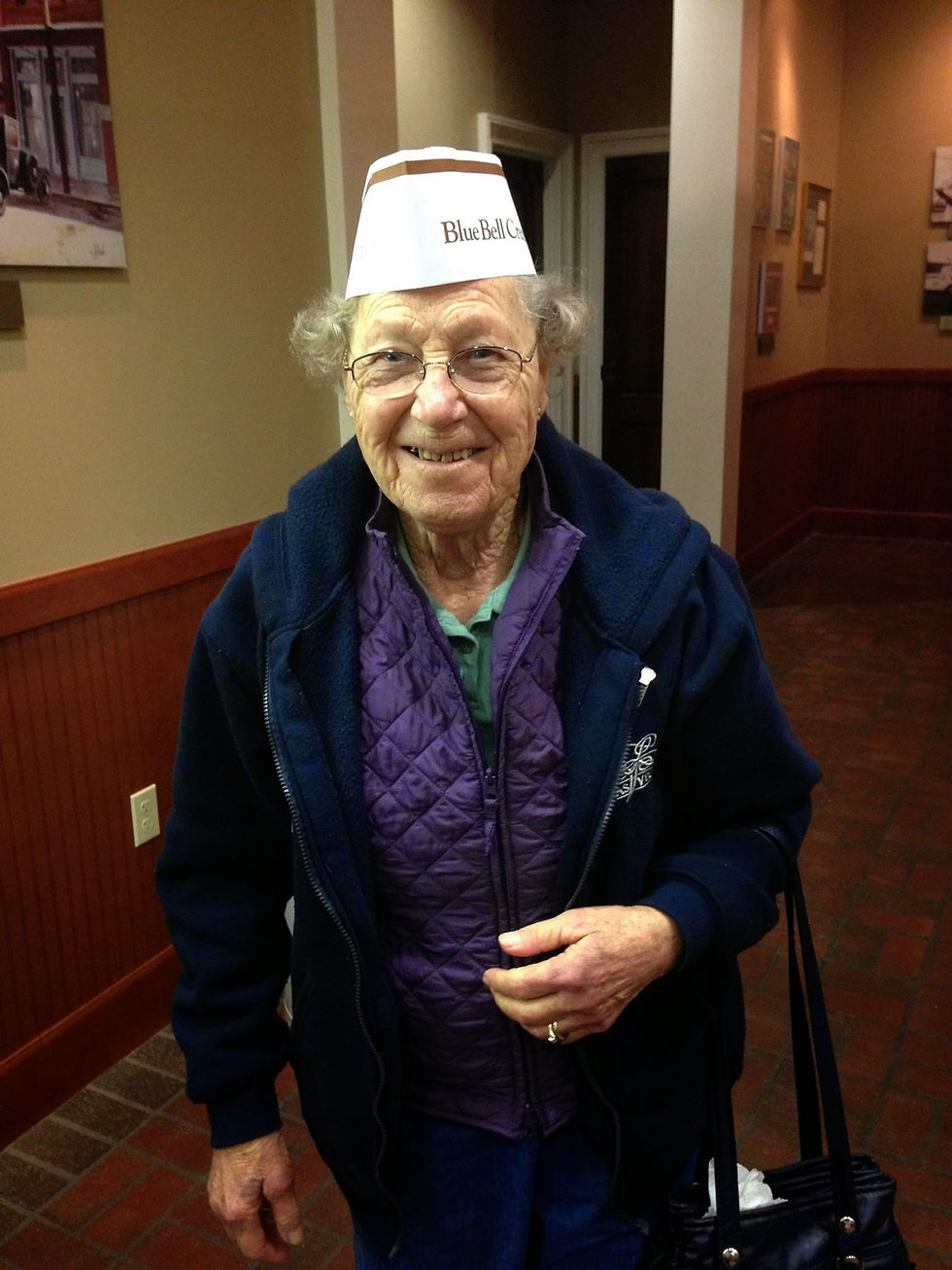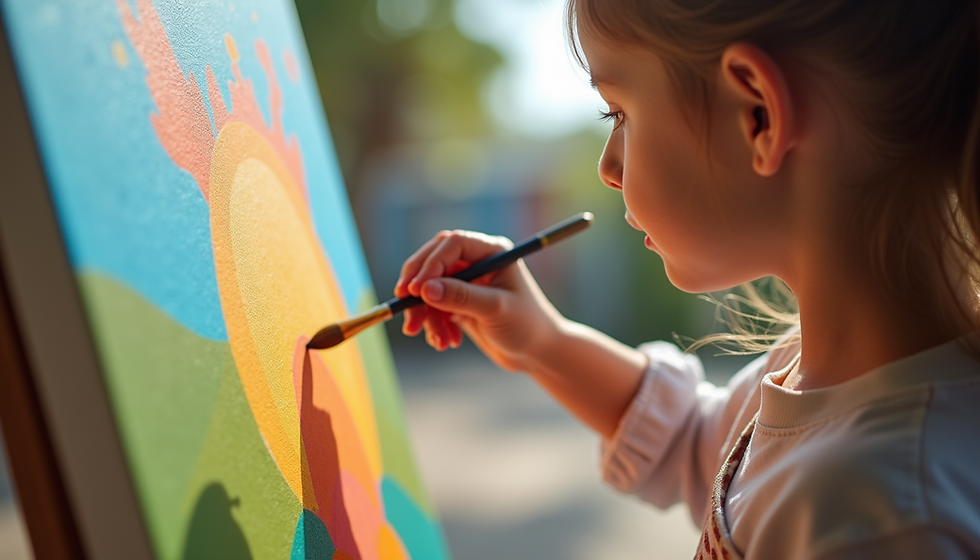How Creative Workshops Inspire Educators
- Rebecca j. Hopp
- Apr 21
- 4 min read
Creative workshops have become an increasingly popular tool for educators seeking to enhance their teaching methods. These workshops stimulate creativity, inspire innovation, and foster collaboration among educators. In this post, we explore how creative workshops inspire educators and discuss the impact on their professional development.

The Importance of Teacher Development
Teacher development is crucial for creating effective learning environments. When teachers engage in development programs, they are better equipped to inspire their students. These programs promote not only subject knowledge but also skills in creativity and innovation.
Educators may feel overwhelmed with their daily tasks, impacting their motivation and efficiency. Creative workshops offer an escape from the routine, allowing teachers to explore new ideas and techniques in a supportive environment. This exploration is essential for personal growth and can reignite passion for teaching.

Engaging in Creative Learning
Workshops that focus on creativity often involve hands-on activities. Participants are encouraged to engage in group projects, brainstorm new teaching techniques, and share their experiences with peers. This collaboration fosters a sense of community among educators.
One notable example is a workshop that focuses on integrating art into lesson plans. Teachers might work together to develop curricula that incorporate visual arts, music, or drama into science or math. As they share ideas and techniques, they gain valuable insights that can be implemented in their classrooms.
According to a study conducted by the National Endowment for the Arts, arts-integrated learning significantly improves student achievement and engagement. Creative workshops do not only enhance teacher skills, but they also positively influence student outcomes.
What are the Three Types of Professional Development for Teachers?
Understanding the various types of professional development available is essential for educators looking to improve their skills. Here are three primary types of professional development for teachers:
Workshops and Seminars: These typically focus on specific skills or curriculum areas. Workshops often feature guest speakers or experts in the field encouraging collaboration and interaction.
Mentoring and Coaching: This personalized approach allows more experienced educators to guide newer teachers. It focuses on one-on-one support, providing valuable insights and feedback over time.
Online Courses and Training: Modern technology allows teachers to engage in professional development at their own pace. Online courses provide flexibility and access to a wealth of resources that may not be locally available.
Creative workshops often fall under the first category. The dynamic environment fosters the sharing of innovative ideas and strategies that teachers can take back to their classrooms.

The Ripple Effect of Creativity
When teachers participate in creative workshops, the impact goes beyond their personal growth. The benefits ripple outwards to students, schools, and wider communities.
Enhanced Classroom Environment: Educators who embrace creativity often implement innovative teaching strategies in their classrooms. This approach leads to more engaging and interactive learning experiences for students.
Increased Student Engagement: When teachers feel inspired and motivated, they pass that energy onto their students. Engaged students are more likely to participate, ask questions, and pursue knowledge outside the classroom.
Collaborative School Culture: Educators who share their workshop experiences with colleagues can create a culture of collaboration in their schools. Sharing ideas fosters an environment where teachers support one another in implementing creative strategies.
Implementing Creativity in the Classroom
To fully harness the potential of creative workshops, educators must find ways to translate what they learn into their daily teaching practices. Here are actionable recommendations:
Start Small: Implement one new strategy at a time. This reduces overwhelm and allows for a more seamless transition into your existing curriculum.
Encourage Student Input: Foster an environment where students feel safe sharing ideas. Encourage them to participate in decision-making regarding projects or assignments.
Collaborate with Colleagues: Share what you’ve learned with your peers. Collaborating on lesson plans or teaching strategies can lead to richer educational experiences.
Reflect on Practices: Set aside time for self-reflection. Evaluate your teaching and identify which creative strategies resonate with your style and those of your students.
Seek Feedback: After implementing new techniques, ask your students for feedback. Understanding their perspectives can provide insights and help refine your approach.
Creative workshops have the power to transform the teaching landscape. By adopting new methods and fostering collaboration, educators can create vibrant, engaging, and effective learning environments.

The Lasting Impact of Creativity on Education
The benefits of attending creative workshops extend beyond immediate inspiration. Teachers become more adaptable and better equipped to face new educational challenges. This professional growth ultimately leads to improved student outcomes and a passion for learning that is contagious.
When educators are encouraged to think creatively, they set an example for their students. They demonstrate that learning is a journey, full of exploration and innovation. This mindset is essential in today’s fast-paced world, where adaptability and creativity are key to success.
By participating in creative workshops, educators not only nurture their development but also pave the way for a more dynamic and engaging educational experience for all students. As teachers embrace creativity, they unlock the potential within themselves and their students, fostering a culture of learning that lasts a lifetime.
In exploring avenues for professional development, consider the innovative approaches that workshops provide. Visit professional development for teachers to discover more on enhancing your teaching skills through engaging and creative workshops.
The journey of teaching is ever-evolving, and with creativity comes the potential for extraordinary breakthroughs in education.




Comments